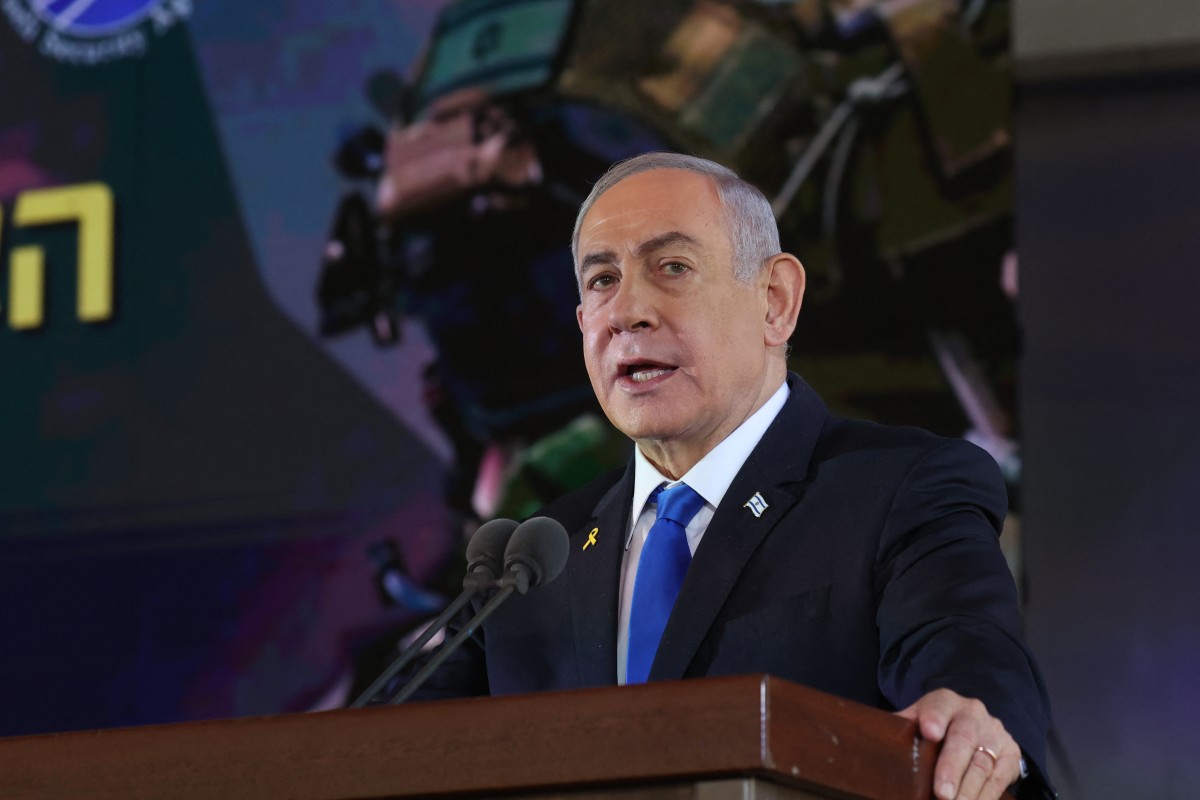
403
Sorry!!
Error! We're sorry, but the page you were looking for doesn't exist.
Netanyahu currently enjoys favorable circumstances
(MENAFN) Prime Minister Netanyahu is currently enjoying favorable circumstances: Hezbollah is weakened, Syrian leader Assad is distracted in Moscow, Tehran's ayatollahs are anxious, and Hamas in Gaza is facing setbacks. Meanwhile, the election of his close ally, Donald Trump, is also seen as a boon. In light of this, Netanyahu has highlighted the importance of a recent, "very friendly" conversation with the U.S. president-elect, stressing the need to bring Israel’s ongoing challenges to a victorious conclusion. However, with these favorable conditions comes the weight of important decisions. The first is the potential for a prisoner exchange deal. While it's easy to advocate for a deal and its benefits, Netanyahu must confront the complexities involved, including the price of such an agreement, the potential for freed individuals to return and reveal information that could have saved others, and the ramifications of stopping a war to secure the deal.
The second challenge is Iran. The changing dynamics in Syria, Lebanon, and Gaza, coupled with the incoming U.S. administration's stance, present a rare opportunity to strike at Iran’s nuclear facilities. Much of Iran’s air defense has been compromised, and it appears the threat of retaliation from Iran’s allies is less significant than before. Netanyahu’s military options seem more viable than in 2011 when he hesitated to take action against Iran. The situation now sees the security leadership in Israel weakened post-October 7, leaving Netanyahu with more control over military decisions. The U.S. is in a period of transition, with one administration winding down and another eager to assert itself, possibly allowing Netanyahu the leverage he needs for an attack. Yet, the risk of launching a military strike on Iran remains significant. While reports suggest Iran has enriched enough material for nuclear weapons, it is unclear whether Israel could destroy the entire nuclear project in one campaign. Additionally, Iran’s allies in Russia, China, and North Korea could retaliate, and there is uncertainty over whether Trump would support Israel’s actions or negotiate with Iran behind Israel’s back.
In such a critical moment, Netanyahu’s domestic politics also come into play. A leader who is about to initiate a high-stakes military campaign typically aims for unity on the home front. Netanyahu had previously formed a broader government during the 1967 war and after October 7. But now, his focus seems to be elsewhere. He has prioritized a divisive legal reform agenda, even as the country is preoccupied with military operations. There are tensions within his government over the legal adviser’s position and controversial legislative moves that risk eroding Israel’s democratic system. The ongoing struggle over military service exemptions for Haredim remains a significant barrier to passing these laws. Thus, Netanyahu faces a dilemma: does he intend to reshape the Middle East and make bold moves abroad, or does he believe he can juggle both military operations and domestic upheaval? The situation remains precarious, as public support for military campaigns and democracy in Israel could be undermined by the political infighting currently gripping the government.
The second challenge is Iran. The changing dynamics in Syria, Lebanon, and Gaza, coupled with the incoming U.S. administration's stance, present a rare opportunity to strike at Iran’s nuclear facilities. Much of Iran’s air defense has been compromised, and it appears the threat of retaliation from Iran’s allies is less significant than before. Netanyahu’s military options seem more viable than in 2011 when he hesitated to take action against Iran. The situation now sees the security leadership in Israel weakened post-October 7, leaving Netanyahu with more control over military decisions. The U.S. is in a period of transition, with one administration winding down and another eager to assert itself, possibly allowing Netanyahu the leverage he needs for an attack. Yet, the risk of launching a military strike on Iran remains significant. While reports suggest Iran has enriched enough material for nuclear weapons, it is unclear whether Israel could destroy the entire nuclear project in one campaign. Additionally, Iran’s allies in Russia, China, and North Korea could retaliate, and there is uncertainty over whether Trump would support Israel’s actions or negotiate with Iran behind Israel’s back.
In such a critical moment, Netanyahu’s domestic politics also come into play. A leader who is about to initiate a high-stakes military campaign typically aims for unity on the home front. Netanyahu had previously formed a broader government during the 1967 war and after October 7. But now, his focus seems to be elsewhere. He has prioritized a divisive legal reform agenda, even as the country is preoccupied with military operations. There are tensions within his government over the legal adviser’s position and controversial legislative moves that risk eroding Israel’s democratic system. The ongoing struggle over military service exemptions for Haredim remains a significant barrier to passing these laws. Thus, Netanyahu faces a dilemma: does he intend to reshape the Middle East and make bold moves abroad, or does he believe he can juggle both military operations and domestic upheaval? The situation remains precarious, as public support for military campaigns and democracy in Israel could be undermined by the political infighting currently gripping the government.

Legal Disclaimer:
MENAFN provides the
information “as is” without warranty of any kind. We do not accept
any responsibility or liability for the accuracy, content, images,
videos, licenses, completeness, legality, or reliability of the information
contained in this article. If you have any complaints or copyright
issues related to this article, kindly contact the provider above.


















Comments
No comment